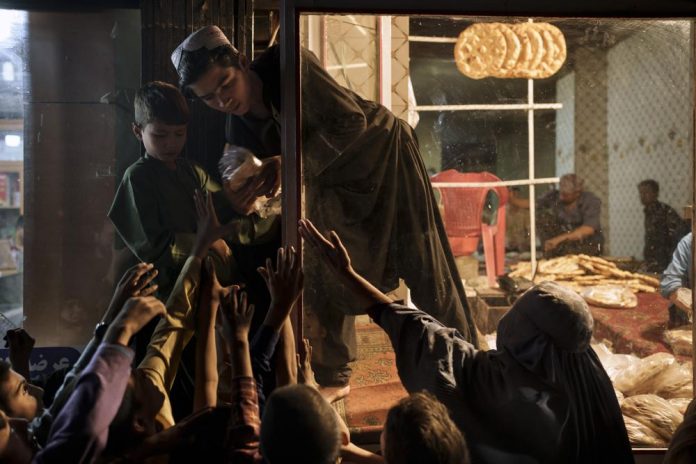By AYA BATRAWY
Associated Press
(AP) – It’s been little more than a month since Kalashnikov-toting Taliban fighters in their signature heavy beards, hightop sneakers and shalwar kameezes descended on the Afghan capital and cemented their takeover. Now they’re vying for a seat in the club of nations and seeking what no country has given them as they attempt to govern for a second time: international recognition of their rule.
The Taliban wrote to the United Nations requesting to address the U.N. General Assembly meeting of leaders that is underway in New York. They argue they have all the requirements needed for recognition of a government. The U.N. has effectively responded to the Taliban’s request by signaling: Not so fast.
Afghanistan, which joined the U.N. in 1946 as an early member state, is scheduled to speak last at the General Assembly leaders’ session on Monday. With no meeting yet held by the U.N. committee that decides challenges to credentials, it appears almost certain that Afghanistan’s current ambassador will give the address this year — or that no one will at all.
The U.N. can withhold or bestow formal acknowledgement on the Taliban, and use this as crucial leverage to exact assurances on human rights, girls’ access to education and political concessions. This is where the power — and relevance, even — of the 76-year-old world body still holds.
Afghanistan is a good, and perhaps extreme, representative case study of precisely why the United Nations was founded in the aftermath of World War II, said Rohinton Medhora, president of the Center for International Governance Innovation in Canada.
“If you’re the U.N. and you want to represent the family of nations, then you want absolutely everyone of the family there — even you know, the distant cousin that not everyone’s proud of,” he said. “So the U.N. needs Afghanistan and countries to demonstrate the value of many of its operations.”
In Afghanistan, the United Nations can deploy the weight of its vast aid and development programs to show just how crucial its often underfunded agencies are in providing stability and security. The country is facing multiple humanitarian crises and near-total poverty due to fallout from the political situation.
There are already growing calls for aid to be contingent on ensuring girls’ access to education. Despite promises to be inclusive and open, the Taliban have yet to allow older girls back to school, have curtailed local media freedoms and returned to brutal practices like publicly hanging dead bodies in city squares.
“Taliban does not represent the will of the Afghan people,” Afghanistan’s currently accredited ambassador to the U.N. in Geneva, Nasir Andisha, told The Associated Press.
If the United Nations recognizes the Taliban’s claim to power, Andisha said, then it sends a corrosive message to others — be it in Yemen or in Myanmar — that they can take up guns, create violence, join with U.S.-designated terrorist groups.
“I think for the world, for the United Nations, it’s time to use this as a leverage,” Andisha said.
The Taliban’s appointed U.N. representative, Suhail Shaheen, a former negotiator and political spokesman, told The Associated Press that his government should be admitted into the club of nations and that “all borders, territory and major cities of Afghanistan are in our control.”
“We have support of our people and because of their support, we were able to continue a successful struggle for independence of our country which culminated in our independence,” he said. “We have all the requirements needed for recognition of a government. So we hope the UN as an neutral World Body recognize the current government of Afghanistan.”




















